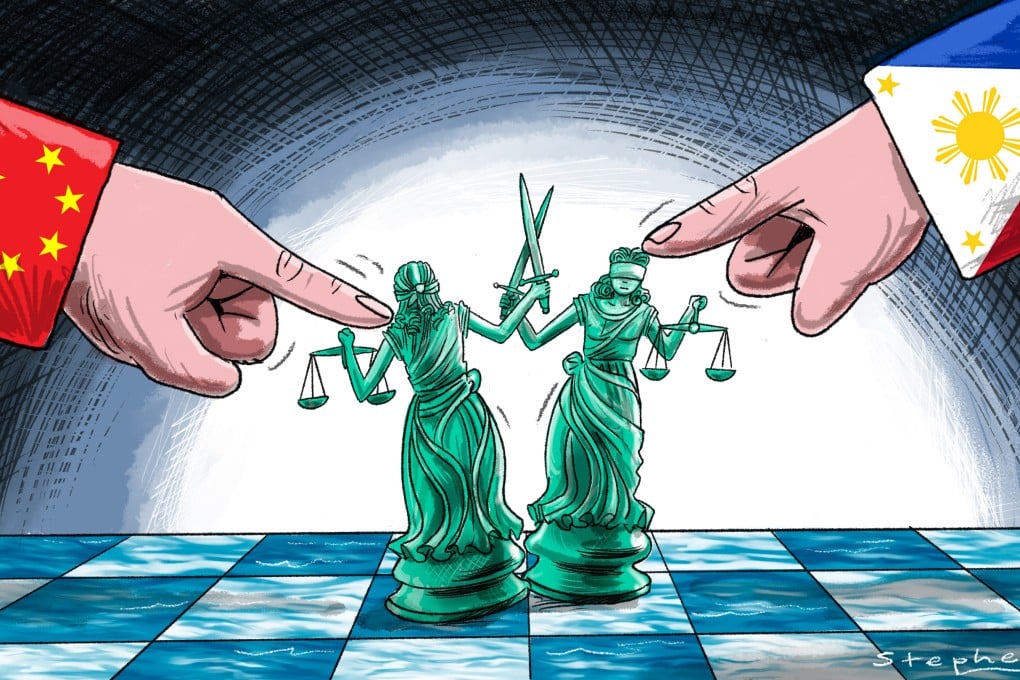Advertisement
Opinion | Legal moves turn South China Sea into a public image battleground
- The Philippines’ use of international law to bolster its standing in the South China Sea dispute works, but it could have unintended consequences
Reading Time:4 minutes
Why you can trust SCMP
2

Recent clashes between China and the Philippines over the Second Thomas Shoal have heightened tensions in the South China Sea. The Philippines has maintained a presence there since 1999 by stationing a small contingent of marines on the BRP Sierra Madre, a deliberately grounded World War II-era ship symbolising its claims over the area.
China also claims the shoal based on its nine-dash line. It has taken actions to prevent the Philippines from turning the shoal into a military base and attempted to prevent resupply boats from the Philippines from reaching the Sierra Madre.
In response to Chinese actions, the Philippines has lodged diplomatic protests and sought to bolster its military and logistical capabilities. The Philippine government has reiterated its commitment to maintaining its presence at Second Thomas Shoal and has called for international support. Meanwhile, China has accused the Philippines of staging incidents to gain more international attention and sympathy.
The Philippines has taken further actions that add to the complexity of the South China Sea status quo. While there haven’t been any official announcements regarding initiating new arbitration hearings against China, reports suggest there have been discussions to that end.
The Philippines might seek arbitration to challenge specific Chinese actions it sees as illegal. Additionally, the Philippines might aim to highlight concerns about potential environmental damage from Chinese activities on the seabed.
On June 14, the Philippines requested that the Commission on the Limits of the Continental Shelf (CLCS) – an international body established under the United Nations Convention on the Law of the Sea (Unclos) – recognise that the outer limits of its continental shelf extended beyond 200 nautical miles in the West Palawan region. Although the CLCS lacks enforcement power, it provides recommendations by reviewing the technical details of a country’s extended continental shelf claims.
Advertisement
Select Voice
Choose your listening speed
Get through articles 2-3x faster
1.1x
220 WPM
Slow
Normal
Fast
1.1x
